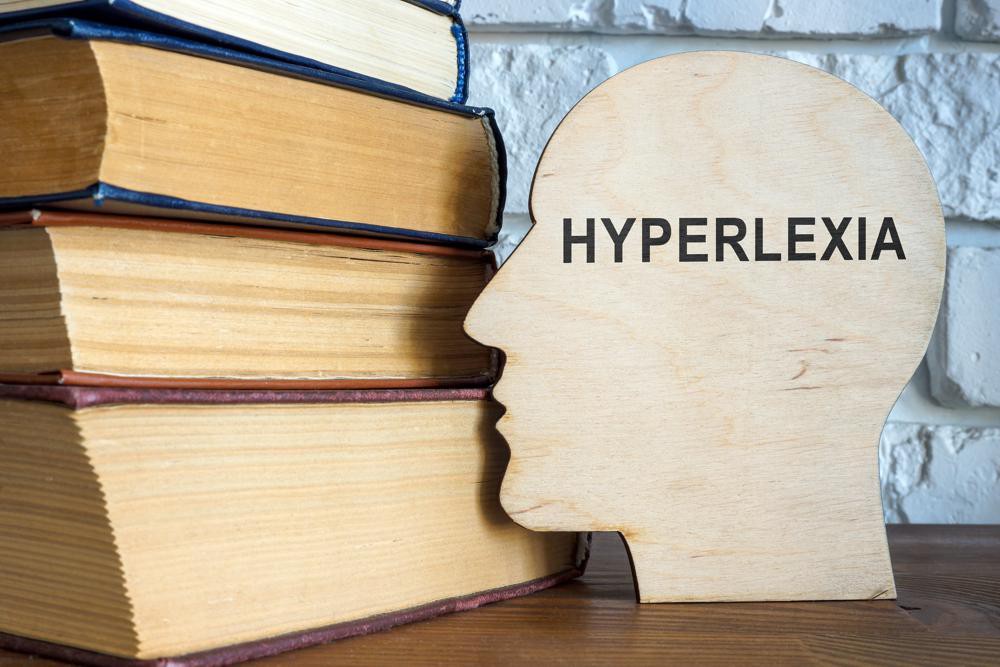While our last post discussed developmental factors that play a role in healthy personality development, this article discusses the disorders of personality, which are personalities that due to how they are formed, may lead to various interpersonal and emotional difficulties. Afterward is a brief overview of risk factors for personality disorders in childhood and adolescence. At the end of the article, a brief discussion of various treatments will be discussed.
Resources For Families and Educators
Play is at the core of children’s lives. It is how children express themselves, connect with others, and make sense of the world. Play is so important for children’s development that the American Academy of Pediatrics (AAP) describes it as “essential to the social, emotional, cognitive, and physical well-being of children beginning in early childhood.” Through play, children can share their fears, frustrations, wishes, and dreams with others, as they cannot yet directly verbalize their thoughts and feelings.
Nowadays, the internet is an ever-constant presence in both parents' and children’s lives. Never before has technology allowed us to be so immersed in the lives of others around the world. Social media, online spaces where individuals can post, share, and respond to content (written, photo, video), has become a virtual meeting site where people can keep in touch with friends, stay abreast of current events, and build communities. What occurs on sites such as TikTok, YouTube, Twitter, Instagram, Facebook, and Tumblr can be just as important, if not more important, than what occurs in the non-virtual world.
Mentalization is a term clinicians and researchers use to describe the process by which parents can reflect on their child’s thoughts, feelings, and motivations, and then communicate these feelings back to their child. It is a process we all engage in, and one that relies on our ability to use imagination, empathy, and communication to work effectively. It also requires the parent to reflect on their emotional states and own history to ensure that they can effectively sort out what their child is thinking and feeling, and what the parent is thinking and feeling.
Please note that this is a continuation of the prior blog post titled: “Identifying and Preventing Escalating Behaviors in Children”
In the first half of this blog post, we discussed ways to prevent an escalation of behavior and emotion in your child. However, due to the fact that no caregiver, child, or environment is perfect, there may be times when no amount of prevention or early intervention will be enough to stop an escalation in its tracks. This post will briefly review the final four stages of Colvin’s (2004) Escalation Cycle: 4) Acceleration, 5) Peak, 6) De-Escalation, and 7) Recovery.
Children often experience ‘big emotions,’ getting caught up in joy, sadness, anger, and fear in strong, often intense, ways. When overwhelmed by these feelings, our children ‘act out,’ and escalate emotionally and behaviorally. Although we should expect our children to act out at times as they learn to regulate their emotions and problem-solve, sometimes these escalations can lead to problems academically, socially, and personally. Every child experiences and expresses their emotions differently but the escalation pathway often follows similar patterns and is described in the Escalation Cycle, as shown below.
Cognitive Distortions are exaggerated or irrational negative thought patterns that can influence your emotions. These cognitive distortions are commonly referred to as thought traps because they often have a habitual nature and are hard to break out of, especially in moments of distress. Cognitive distortions don't have a single root cause but are commonly associated with mental health struggles such as depression and anxiety along with exposure to traumatic events or abuse.
When our children feel bad, we might often want to make them feel better instantly. Paying attention to what we say is important because invalidating feelings could ultimately lead to our children feeling worse. Actually, invalidating the feelings of our family members could be especially damaging to their mental health.
The Report
The current U.S. Surgeon General, Dr. Vivek Murthy, released an extensive advisory report on social media and youth mental health. While social media may offer benefits, there are clear indicators that social media can also pose a risk of harm to the mental health and well-being of children and adolescents. Social media use by young people is nearly universal, with up to 95% of young people ages 13-17 reporting using a social media platform and more than a third saying they use social media “almost constantly.”
Call to Action
Dr. Vivek Murthy’s advisory comes as a call to action urging policymakers, researchers, parents, children, technology companies, and those in the mental health community to gain a better understanding of how social media impacts our community, how to optimize social media usage and how to create a safe online environment. Most social media platforms are designed for kids above the age of thirteen, but recent data shows that 40% of kids between the ages of 8-12 use these platforms often. Growing bodies of research acknowledge the potential harm of social media use during critical stages of development on mental health outcomes. The surgeon general’s report goes on to state that, at this time, there is not yet enough evidence to determine if social media is sufficiently safe for children and adolescents. That is a strong statement that highlights the need for a more in-depth understanding of how social media is affecting our young people's mental health.
What is the Harm?
As parents of children who are undergoing neuropsychological evaluations or as test takers ourselves, we often wonder what our intellectual capacity says about us or our child. Intellectual capacity, our very ability to think, learn, plan, and understand ideas, can bring up all sorts of emotions and questions. Moreover, questions arise when trying to make meaning from a 2-3 digit number like an IQ that often holds an over-ascribed meaning. Scores could feel daunting, like an assigned grade. For example, if a child receives an IQ of 90 a parent might think that could explain why their child is struggling in school, but that is not necessarily the case. Performance on a single assessment or measure of intellectual ability is only part of the picture and means very little without other sources of information.
The Jump (Highschool to College)
There are so many concerns for all parents regarding their child transitioning from high school to college. Parents of students with disabilities may especially wonder how their child will keep up with an increased workload. College could be the perfect storm of increased freedom, lack of supervision, and many new demands. Parents know how much support they give their children, and wondering where that support might come from once they leave home is worrying.

Attention-deficit/hyperactivity disorder (ADHD) is a neurodevelopmental disorder that affects many people globally. It has been connected to higher rates of failure in academic settings, a higher likelihood to be unemployed, and could make developing and maintaining relationships difficult. However, on the bright side, researchers have long wondered if ADHD has a strength: Enhanced creativity.
Have you ever been scared in your own home? Children and teens exhibiting defiant behavior consistently can be emotionally draining for themselves and others around them. There's a range between the usual independence-seeking behavior of teens and out-of-control defiant behavior. It's normal to exhibit oppositional behaviors at certain stages of an adolescent’s development.
Hyperlexia is a term that describes a child's precocious ability to read. Children with hyperlexia might show an intense interest in all printed material and could be able to read as early as 18 months old, before any real language skills have even developed. Hyperlexia is not a diagnosis by itself and does not appear as an official diagnosis in psychological diagnostic manuals. The term is used as a practical label to provide parents, educators, and mental health professionals with a better understanding of how a child with hyperlexia might think and learn. This is particularly important because hyperlexia often co-exists alongside Autism Spectrum Disorder (ASD) and other developmental disorders.
Children with ADHD and children with anxiety can exhibit some similar characteristics and behaviors making it more challenging to tell the difference. For instance, children with ADHD are more likely to have higher rates of co-occurring anxiety. It can be difficult to tease out if inattention is due to anxiety or if in fact, the anxiety is a result of deficits regarding attention regulation due to ADHD. This brings up the added complication of secondary anxiety. Secondary anxiety in children with ADHD usually involves being anxious about executive functioning difficulty (anxiety about assignments, time management, school demands, etc.).
As we delve deeper into the differences between ADHD and Anxiety disorders, let's briefly look at some of the main symptoms of each.
Dysgraphia is a neurological disorder of written expression. It is a learning disability that affects children and adults interfering with skills like handwriting, typing, and spelling. It can also impact the capacity to translate ideas into language.
Although it is estimated that 5-20% of children have Dysgraphia it should not be confused with poor handwriting. Dysgraphia is more serious and generally appears when children are first learning to write. Each case is unique, and experts are not always sure what the causes are, but early treatment can help prevent or reduce problems.
One of the main differences between Autism Spectrum Disorder (ASD) and Social Pragmatic Communication Disorder (SCD) is that people with Autism have difficulties with social communication (language deficits, social challenges) AND also exhibit repetitive and/or disruptive behaviors.
Repetitive behaviors often look like:
MAKE IT FUN
Playful interactive stimulation is vital for cognitive development - a child's ability to think and reason. A child at play is constantly exploring, experimenting, thinking, learning, and solving problems.
February is heart health awareness month and the perfect time to talk about how we can better care for our hearts. We know to eat right, exercise and check up with our cardiologists, but our emotional well-being plays such an important role too. Stress, anxiety, and depression are proven to be major risk factors for heart disease, the leading cause of death in our country. So, let's take a step back and take a deeper look at the importance of mental health.
Problems can arise in conversation. That's when emotions, expectations, and opinions clash. Everybody sees the world in a different way.





















